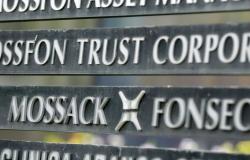A new report from the EBU Investigative Journalism Network reveals how investment funds have transformed European football, taking the Beautiful Game to a new level on the pitch and on the balance sheet. The increased influx of foreign capital has caused a concentration of club and player ownership. Smaller teams may be deliberately held back as business decisions trump sporting success, with their rising stars shipped off to larger clubs within the same ownership group. The result is that the integrity of the game is compromised and regulators struggle to keep up.
For months, investigative journalists from the editorial staff of the EBU and its Members: RTBF (Belgium); RTVE (Spain), RSI (Switzerland) and ZDF (Germany) have worked to meticulously unravel ownership systems and their effects on European football leagues and the player transfer market. By speaking to key experts and highlighting significant conflicts of interest, the investigation sheds light on the changing landscape of football ownership and its implications.
The change in ownership of European football has been dramatic. City Football Group (CFG), owned by Sheikh Mansour bin Zayed, a member of the Abu Dhabi royal family and vice-president of the United Arab Emirates, has 13 clubs on five continents, while other groups such as Red Bull and 777 partners also own several clubs. This concentration of ownership influences the transfer market, with significant transactions between players, and could pose integrity risks for international competitions where these clubs could compete; Manchester City and Girona, who are part of the CFG, have qualified for the 2024/25 Champions League. The influx of investment from Gulf states is also sparking ethical debates, creating associations with regimes with poor human rights records.
“A first risk is that of even greater domination on the part of these large structures, which, thanks to these strategies, control a swarm of talents and are very influential on the transfer market, controlling many more players than they don’t really need it,” says Raffaele Poli, director of the CIES Football Observatory, stressing that transactions between players exceeded 10 billion euros last year. “But it also clips the wings of the competition, which is not an ideal situation. And in any case there are risks of conflict of interest, even of fairness in competitions, particularly in international interclub competitions where these clubs could clash.
In 2023, the overall enterprise value of Europe’s 32 largest football clubs was estimated at €51.7 billion, by data and analytics platform Football Benchmark
“You’re talking about industrial assets,” explains Simon Chadwick, professor of sport and geopolitical economics at SKEMA Business School Paris. “This year, Manchester City became the first football club in the world to generate revenue worth £1 billion. These industrial assets generate export revenues, tax contributions and create jobs. So you imagine that we want to protect these results. I would ask the question: not just the European Union, but which government in Europe is doing anything to protect these assets?
Meanwhile, local fan bases are increasingly disconnected as match prices are increasingly priced out. The focus on profitability often speaks more to business strategies than to local communities, undermining deep-rooted social bonds. “Sport is an industry like no other, it has cultural value for countries and is closely linked to things like education, development, youth programs,” he said. says law professor Katarina Pijetlovic, an expert in European sports law.
Both UEFA and FIFA face challenges in regulating these multi-club entities and, as multi-club ownership grows, concerns over fair competition and financial transparency grow with them. Legal experts and economists emphasize the need for strong regulation to maintain the integrity of the sport.
As the football landscape continues to evolve, the sale and ownership of clubs across the continent The EBU investigation shows that European football is at a crossroads, between commercial interests and preserving its cultural heritage, and highlights an urgent need. for transparency and regulation to maintain the integrity of sport in the midst of these radical changes.
Pilar Requena, head of the investigative unit at RTVE, chairs the steering committee of the EBU investigative journalism network: “The research was born to analyze who are the owners of European football and why the funds American investment, Gulf States or millionaires from other countries are taking over European football clubs. As research progressed, new questions emerged around fair play, transfers and multi-club ownership, showing how football has become an industry and money-making machine, leading to a loss of power and influence of supporters in their clubs and a loss of power. traditional values and the spirit of European football.
“It has been exciting to work with colleagues from different European countries, as we have been doing for a few years now, and it shows that cross-border investigative collaboration makes us stronger and more effective when we share the same values and goals.”
Belen Lopez Garrido, Editorial Manager of Eurovision and Project Manager for the EBU Investigative Journalism Network, said: “Carrying out an investigation of this scope and scale requires diligence and commitment. to produce in-depth, fact-based reporting. By working together and sharing our findings throughout the process, we were able to gain a much broader perspective on the issue and its implications for clubs big and small across the continent.
Liz Corbin, EBU News Director, said: “We are committed to investigative journalism as a fundamental principle of public service broadcasting and our reporting really benefits from this strong Europe-wide network which can pool expertise, resources and contacts to explore and report important stories. Once again, this team has produced important journalism that is squarely in the public interest.”
The report – Who owns European football? The Sale of Beautiful Game – is by the EBU Investigative Journalism Network.






